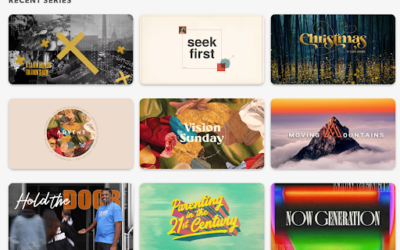Did you know your nonprofit has access to $10,000 for advertising every month through the Google Ad grant? Sadly, many nonprofits and ministries leave advertising dollars (and limitless growth potential) on the table because they don’t understand the Google grant eligibility guidelines. Today, we’ll show you how to know if your organization qualifies for the Google Ad grant.
We understand how frustrating it is to spend hours in research only to learn you’re not even eligible to apply for a grant. But here’s the best-kept secret about the Google Ad Grant: there’s no competition. If you’re eligible, you’re in, assuming the application is filled out correctly. For help with the application, see our guide for How to Apply for the Google Ad Grant (with Free PDF Download).
The Google Ad grant is available in a growing list of countries around the world. While this post will focus on Google grant eligibility requirements in the United States, I invite our non-US readers to skip to our Links Library at the end of this article to find out if the grant is available in your country, and how to know if your organization qualifies.
Google Ad Grants Eligibility Overview
Google for Nonprofits offers a suite of four products to help nonprofits grow and thrive: Google Workspace for Nonprofits, Google Ad Grants, YouTube Nonprofit Program, and Google Earth and Maps. All four products are offered in the United States. (Our non-US readers will find a list of services by country in our Links Library at the end of this article).
Since the Google Ad grant is part of the Google for Nonprofits platform, that means your organization must be eligible for Google for Nonprofits before you can apply for the grant. Don’t worry. It’s super easy, and we’re here to help.
Google for Nonprofits Eligibility
First, you’ll request a free Google for Nonprofits account. This is a two-step process to verify your 501(c)(3) status.
To be eligible for Google for Nonprofits, your organization must meet the eligibility requirements for a nonprofit for your country. In the US, this means you must be registered as a 501(c)(3) nonprofit or ministry.
The following nonprofit organizations are not eligible for Google for Nonprofits, and therefore, the Google Ad grant.
- Schools, academic institutions, universities (see Google for Education)
- Hospitals and healthcare organizations
- Governmental entities or organizations
Your organization’s EIN is required for the Google for Nonprofits application. Agree to the Terms of Service, submit your application and wait a few days for an email from TechSoup.
Google has partnered with TechSoup to verify an organization’s 501(c)(3) status. TechSoup will send you an email asking for your 501(c)(3) determination letter from the IRS. After TechSoup verifies your 501(c)(3) status, Google will approve your Google for Nonprofit account.
Step one eligibility, mission accomplished.
Google Ad Grant Eligibility
After TechSoup verifies your organization’s 501(c)(3) status, your Google for Nonprofit account will be approved. You’ll then be able to take advantage of Google Workspace for Nonprofits, Google Ad Grants, YouTube Nonprofit Program, and Google Earth and Maps.
After Google verifies you’re eligible for the grant, you can start putting the advertising dollars to work to the tune of $10,000 every month. And remember, there’s no wait to find out if you’ve won the grant. You can leave your financial summaries, program goals and descriptions, and historical anecdotes in the virtual filing cabinet, because you won’t need any of it for this grant application.
You’ll get an email from Google for Nonprofits to finish the application, which requires two things.
Google’s Website Policy requires that all domains are secure. This means your website URL must begin with https:// instead of http://. The s indicates the website operates securely over SSL.
Google Ad Grant Eligibility Resources
We’re happy to provide you three resources to make it even easier to find out if your organization is eligible for the Google Ad grant. First, our Eligibility Checker will tell you if you’re eligible for the grant in just a few minutes. Second, our eligibility at-a-glance checklist will help you gather everything you need. Finally, we’ve collected a library of links for further information.
Google Grant Eligibility Checker
Click on the graphic below to go to our Eligibility Checker to instantly learn whether your nonprofit is eligible for the Google Grant.
Google Ad Grant US Eligibility At-a-Glance Checklist
- Google for Nonprofits Eligibility
- Registered 501(c)(3) Nonprofit
- Obtain your organization’s EIN
- NOT an educational institution, health care facility, or government entity
- Obtain your organization’s IRS Determination Letter
- Google Ads Grant
- Website starts with Https://
- Meets the Website Policy
Links Library
Google Ad Grant Links
- Grant Eligibility Checker
Click Nonprofits Grant Eligibility Checker will help you determine if your organization is eligible for the Google Ad grant in less than five minutes! - How to Apply for the Google Ad Grant (With free PDF Download)
Our easy step-by-step guide to completing the Google Ad grant application. - Google Ad Grants Home
- Google Ad Grant FAQ
- Google Ad Grants Help Center
- Google Ad Grant Website Policy
Find out about the security requirements for your website to be eligible for the Google Ad grant - If You’re told you’re not eligible…
Troubleshooting for if you find out your registered 501(c)(3) is not eligible for the Google Ad grant.
Google for Nonprofit Links
- Google for Nonprofits Home
Introduction to Google for Nonprofits - About Google for Nonprofits
Learn about the benefits of each of the four Google for Nonprofits products. - Eligibility guidelines for group exempt, tax exempt, and fiscally sponsored organizations in the United States
Learn more details about eligibility guidelines for Google for Nonprofit. - Google for Nonprofits product offerings by country
Find out if the Google Ad grant is available in your country - Google for Nonprofits Eligibility requirements by Country
Learn the Google for Nonprofits eligibility requirements for your country
Summary
The Google Ad grant might just be the easiest grant your registered nonprofit or ministry will ever qualify for. We also realize that just because it’s easy, doesn’t mean you have the time. That’s okay; we’re here to help. After your free consultation, our team will acquire (or reactivate) the grant for your nonprofit at no charge. Either way, we hope you are now a little closer to reaching your target audience and helping your nonprofit thrive with the help of the Google Ad Grant.




